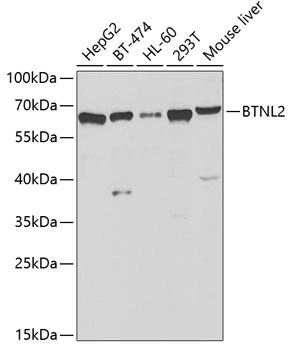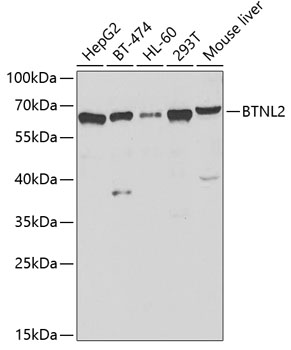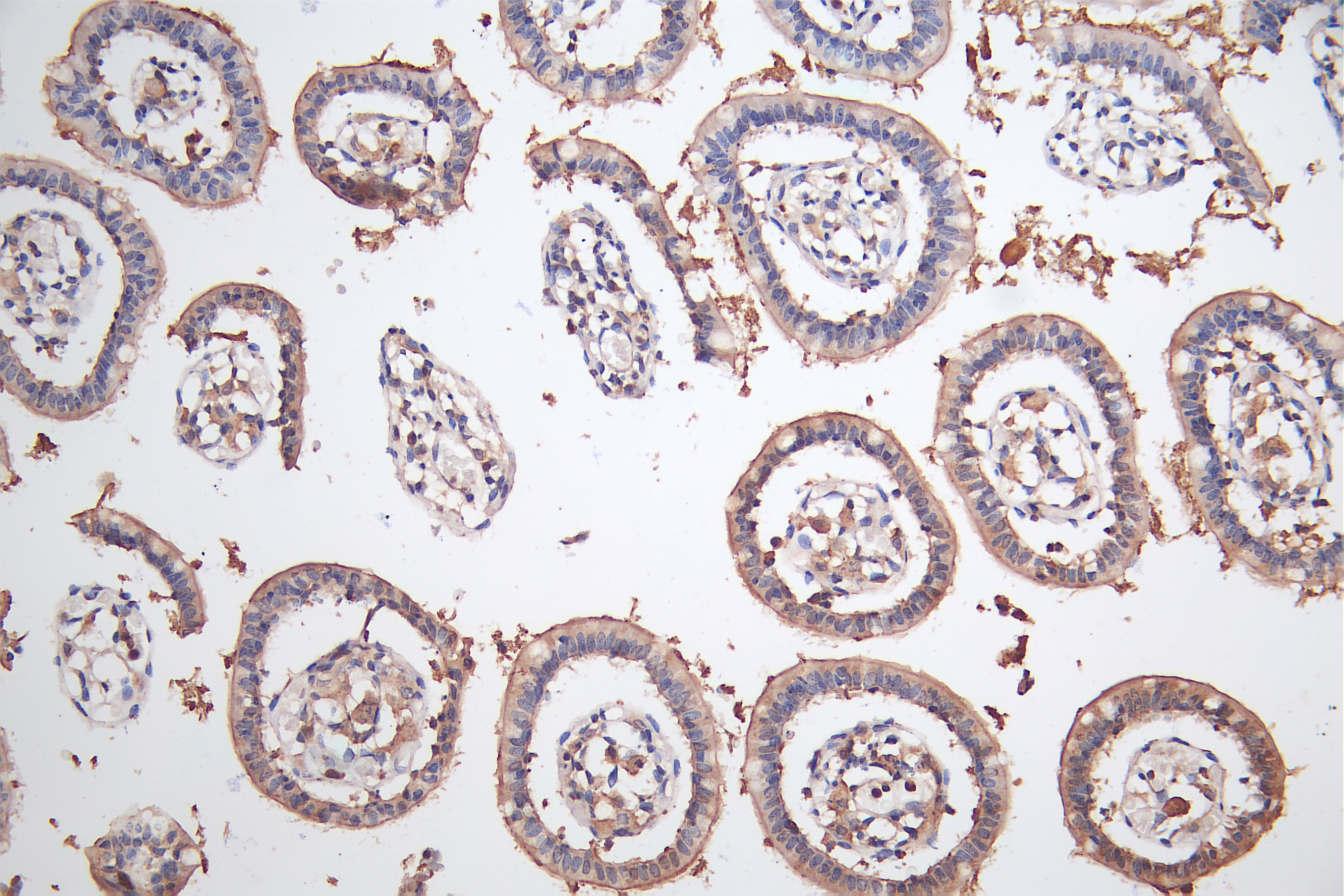
WB analysis of various sample lysates using GTX32480 BTNL2 antibody. Dilution : 1:1000 Loading : 25μg per lane
BTNL2 antibody
GTX32480
ApplicationsWestern Blot
Product group Antibodies
ReactivityHuman, Mouse
TargetBTNL2
Overview
- SupplierGeneTex
- Product NameBTNL2 antibody
- Delivery Days Customer9
- Application Supplier NoteWB: 1:500 - 1:2000. *Optimal dilutions/concentrations should be determined by the researcher.Not tested in other applications.
- ApplicationsWestern Blot
- CertificationResearch Use Only
- ClonalityPolyclonal
- ConjugateUnconjugated
- Gene ID56244
- Target nameBTNL2
- Target descriptionbutyrophilin like 2
- Target synonymsBTL-II, BTN7, HSBLMHC1, SS2, butyrophilin-like protein 2, butyrophilin-like 2 (MHC class II associated)
- HostRabbit
- IsotypeIgG
- Protein IDQ9UIR0
- Protein NameButyrophilin-like protein 2
- Scientific DescriptionThis gene encodes a major histocompatibility complex, class II associated, type I transmembrane protein which belongs to the butyrophilin-like B7 family of immunoregulators. It is thought to be involved in immune surveillance, serving as a negative T-cell regulator by decreasing T-cell proliferation and cytokine release. The encoded protein contains an N-terminal signal peptide, two pairs of immunoglobulin-like domains, separated by a heptad peptide sequence, and a C-terminal transmembrane domain. Naturally occurring mutations in this gene are associated with sarcoidosis, rheumatoid arthritis, ulcerative colitis, inflammatory bowel disease, myositis, type 1 diabetes, systemic lupus erythematosus, acute coronary syndrome, and prostate cancer. [provided by RefSeq, May 2017]
- ReactivityHuman, Mouse
- Storage Instruction-20°C or -80°C,2°C to 8°C
- UNSPSC41116161



